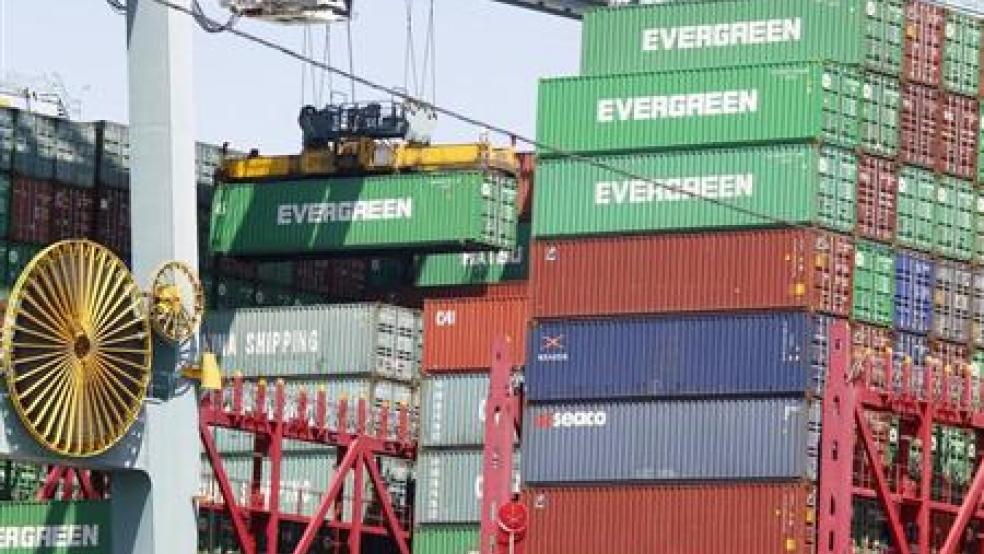With the full-text release of the proposed Trans-Pacific Partnership trade deal on Thursday, the Obama administration is expected to inform Congress of the president’s intention to sign the agreement, starting a 90-day countdown that will likely put the bill before Congress in the heat of the primary election season.
At 30 chapters and supplemented by dozens of appendices and annexes, the TPP runs to thousands of pages of sometimes dense legalese that will ultimately govern trade in goods and services amounting to some 40 percent of the global economy.
Related: Free Market Conservative Kevin Brady Takes Over Ways and Means
Under an agreement struck with Congress earlier this year, Obama’s notification that he intends to sign the agreement is followed by a 90-day period in which the text of the deal, which was negotiated in secret, is publicly available. When the 90 days have passed, Obama may then actually sign the deal, triggering the next step in the TPP’s journey toward enactment.
In the same deal with Congress, the president was granted “fast-track” trade authority, which allows him to present a trade deal directly to Congress for a vote, with no possibility of amendment. Fast-track is widely seen as improving the chances of the package gaining legislators’ ultimate approval. Congress will have 45 legislative days to consider the deal before it comes to the floor.
The arrangement means that the deal will likely come before Congress in March, just as presidential candidates are barnstorming the country hoping to nail down primary election victories. Candidates on both sides of the Democratic-Republican divide are likely to make opposition to the deal central to their stump speeches. Arguably the most visible candidate in either race, real estate billionaire Donald Trump has made criticism of the Obama administration’s negotiations with other countries a centerpiece of his campaign.
Early reaction to the deal broke along some unusual lines in today’s highly partisan political climate. The White House, which negotiated the deal through the office of the U.S. Trade Representative, obviously supports it, as do many conservatives in Congress, as well as large segments of the business community.
Related: Paul Ryan Sends a Signal to the GOP’s Right Wing
House Speaker Paul Ryan, the newly elected leader of a body that has done its utmost to block initiatives arising from the White House over the past several years, said he is “hopeful” about the deal.
"I look forward to reviewing the details of the agreement that was released today,” Ryan said in a statement.
“Enactment of TPP is going to require the administration to fully explain the benefits of this agreement and what it will mean for American families. I continue to reserve judgement on the path ahead. But I remain hopeful that our negotiators reached an agreement that the House can support because a successful TPP would mean more good jobs for American workers and greater U.S. influence in the world.”
Business Forward, an advocacy group representing small and mid-sized companies, released statements from 50 senior executives singing the praises of the deal.
Related: Donald Trump Is Now Losing to a Guy Who Isn’t Even Trying
However, Obama’s trade pact will likely face significant opposition from the president’s natural allies. The top candidates for the Democratic presidential nomination, Hillary Clinton and Bernie Sanders, have already come out against the deal, and multiple groups on the left side of the political spectrum – from environmentalists to labor unions to online activists -- are all mobilizing against the deal.
“Now that we can read the final TPP text, it's obvious why it was kept in total secrecy for so long: this agreement is a wish list for powerful special interests and multinational corporations,” said Evan Greer, campaign director of Fight for the Future. “The Intellectual Property chapter confirms our worst [fears] about the TPP's impact on our basic right to express ourselves and access information on the Internet. If U.S. Congress signs this agreement despite its blatant corruption, they'll be signing a death warrant for the open Internet and putting the future of free speech in peril.”
“The TPP is an act of climate denial,” said Jason Kowalski, policy director for the environmental group 350. “While the text is full of handouts to the fossil fuel industry, it doesn’t mention the words climate change once. The agreement would give fossil fuel companies the extraordinary ability to sue local governments that try and keep fossil fuels in the ground. If a province puts a moratorium on fracking, corporations can sue; if a community tries to stop a coal mine, corporations can overrule them. In short, these rules undermine countries’ ability to do what scientists say is the single most important thing we can do to combat the climate crisis: keep fossil fuels in the ground.”
While opponents of the deal are mobilizing to fight it, the biggest thing the TPP has in its favor is widespread public indifference to it. A Monmouth University poll released Thursday found that 60 percent of American have no opinion on the impact the deal would have if it is allowed to go through.
The survey found that the vast majority of people in the U.S. know very little about the deal, with 12 percent saying they have heard “ a lot” about the deal, 47 percent saying they had heard “a little,” and 41 percent reporting they’d heard “nothing at all.”





